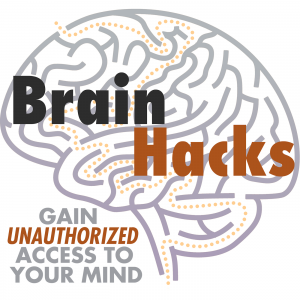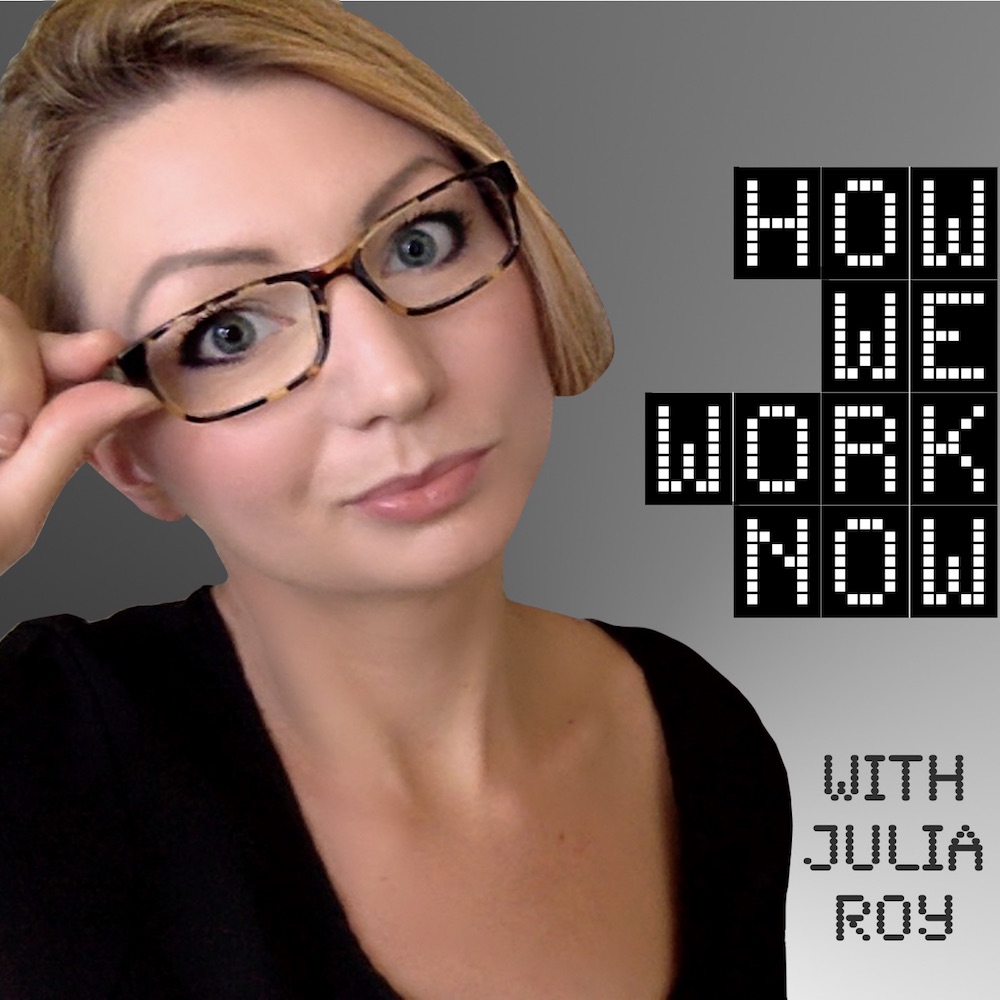Your brain single handedly defines who you are and how you experience the world. But do you know your brain does this? How it actually works?
As I’ve been digging into recent brain research and learning more and more, it amazes me how much information is out there that is not proactively shared with the general public. Within the last decade, brain scientists have discovered that with the right attitude and practice people can overcome devastating trauma, learning disabilities, psychical disabilities as well as the common problems most of us face everyday like overcoming our bad habits and addictive behaviors. This podcast is called BrainHacks because the word Hack is defined as “to gain unauthorized access to” and that is exactly what we will be doing. So be prepared to use what you learn to hack your own brain.
FULL TRANSCRIPT
Your brain single handedly defines who you are and how you experience the world. But do you know your brain does this? How it actually works?
Within the last 15 years, due of advancements in technology like neuroimaging, an enormous amount of proven scientific data is available regarding how our brains actually work. And as I’ve been digging into the research and learning more and more, it amazes me how much information is out there that is not proactively shared with the general public. The data — that is unraveling our understanding of the brain — is usually positioned and published as either a boring scientific case study (that only a trained scientist could fully understand) or a fluffy “you can be anything you want to be” type of piece with the supporting scientific data mostly left out.
The way I see it, there are two major reasons for this. One: It’s not appealing to the mainstream media’s revenue optimization strategy, which clearly focuses on fear-based and sensational pop-culture topics. Two: We have been conditioned to look for quick fixes and are in some ways insulted by the fact that you yourself are responsible for your brain’s problems and inefficiencies. Yet the results of brain science research suggests that you don’t always need a pill to fix your problems you can work on them from the inside out. Because of these factors, the general public is not well informed.
I believe, when you know how your brain works from a proven scientific data perspective, there is something that clicks. It’s no longer a pie in the sky “you can be anything” and here are some strategies that worked for me type of message, but rather a proven here is how the brain works and why it matters and shapes your day to day life. Your perspective changes and from there you can start to test your own ways and begin to change how your brain works.
Now, to appreciate how much more we know about the brain today, it is helpful to look back at what we used to believe.
Aristotle
Aristotle thought the brain was a cooling mechanism for your blood your heart was where your thoughts emerged. This theory was pervasive. The brain was just a machine of minor importance it was your heart that was responsible for all of your mental, rational thoughts.
Then an important discovery was made in the 1700’s, with the invention of electricity. It was discovered that electrical impulses could surprisingly influence how your muscles moved and affect how your brain worked. This suggested electricity was the way information was getting passed around in your brain.
Then finally, in the 1800’s, we discovered there were cells in the brain and that it was neurons that made up the physical matter of the brain. But it is important to note here that the brain was still thought of as a machine and your brain, everyone’s brain is genetically predetermined and can not be changed.
Neuroscience Today
Jumping forward again to today. Neuroscientists can now look inside the brain, and see vivid pictures of its subcomponents and their functions. We can now study the brain in all its aspects: how it’s structured, how it works, how it develops, how it malfunctions, and, most importantly, how it can be changed.
Science now understands, in great detail that your mind emerges from the assemblage of neurons that are connected to each other.
The implications of this (among lots of other brain-related discoveries) is huge and of vital importance to all of us. We know more about the brain today than ever before and the scientific discoveries being made provide us with the blueprints we need to change the way our brains work.
We Still Have So Much to Learn
With that said, there is still a lot about the brain that remains a mystery. But scientific progress is advancing so quickly, which makes learning about the brain really exciting.
Why Advances in Neuroscience Matter
The inspiration for the creation of this podcast is that I see so much of the old scientific dogma still affecting us today. For example, when a doctor tells someone who has suffered from a stroke that “this is as good as they should expect to get” after only 6 months of standard therapy, they are completely undermining the amazing capabilities of the human brain to rewire, regenerate and reconnect itself. Similarly, many of us go around with the same notion, that we are hopelessly who we are, with major change and improvement seemingly impossible.
Within the last decade, brain scientists have discovered that with the right attitude and practice people can overcome devastating trauma, learning disabilities, psychical disabilities as well as the common problems most of us face everyday like overcoming our bad habits and addictive behaviors.
In this podcast we will uncover recent discoveries in neuroscience and discuss what it means for the everyday Joe and Jane and how we can take action to test these new scientific discoveries for ourselves. This podcast is called BrainHacks because the word Hack is defined as “to gain unauthorized access to” and that is exactly what we will be doing. So be prepared to use what you learn to hack your own brain.
Upcoming episodes will cover fun facts about the brain, the discovery of neuroplasticity, the prefrontal cortex’s role in attention and why habits are formed and how they can be changed. Well, that’s it for today, thanks for listening and I’ll see you next week!
[RESOURCES]
Wikipedia: Neuroscience
Wikipedia: Brain
Cold Spring Harbor Laboratory: 3D Brain







